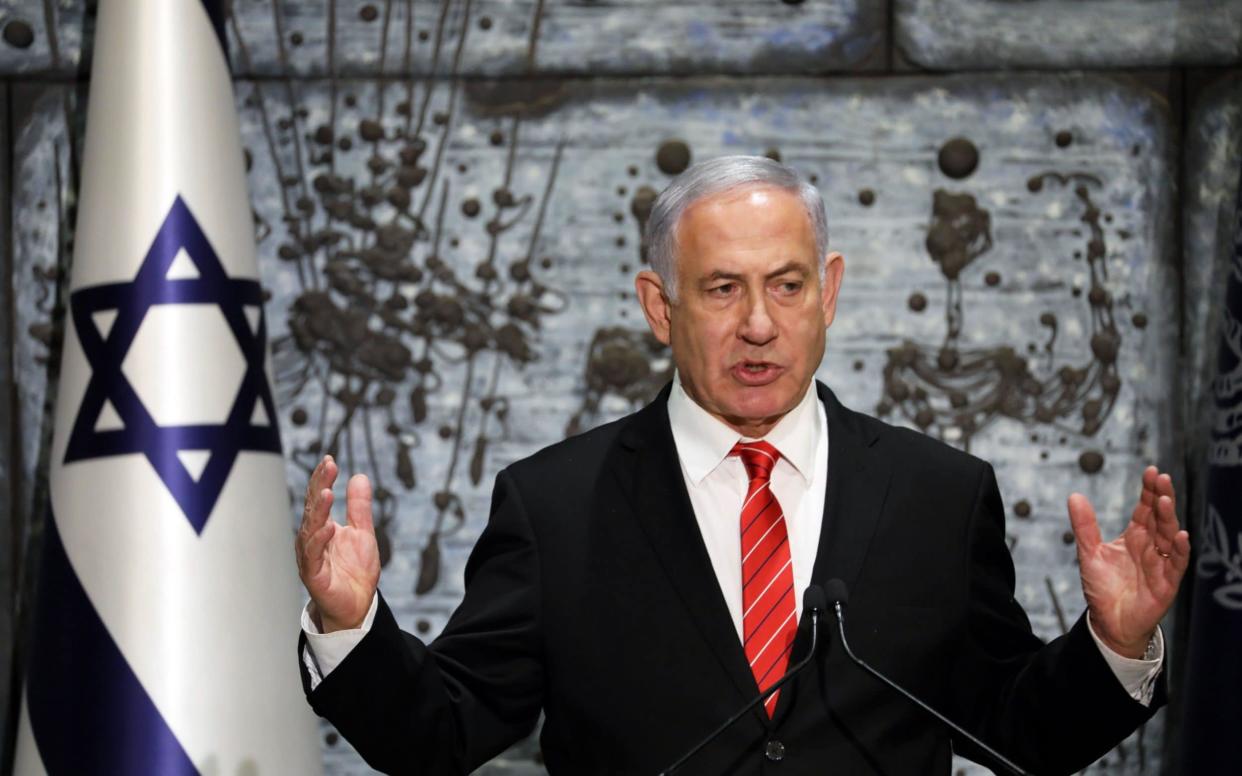Benjamin Netanyahu given first chance to form Israeli government after stalemate election

Benjamin Netanyahu has been given the first chance to form Israel’s government after last week’s election stalemate, offering the prime minister a difficult but not impossible path to continue holding on to power.
Mr Netanyahu’s Likud party emerged from last week’s election slightly behind Blue & White, the centrist party led by former general Benny Gantz, but neither side has a clear path to forming a majority government.
Israel’s president, Reuven Rivlin, attempted to broker a power-sharing agreement between the two sides but said on Wednesday that those efforts had broken down and therefore he was offering Mr Netanyahu the first chance to form a government.
Mr Netanyahu immediately repeated the call for a unity government and hinted he was open to a deal where he and Mr Gantz could take turns as prime minister, an arrangement not seen in Israel since the 1980s. “I am talking about a joint leadership,” he said.
Mr Netanyahu said the threat of Iran and the opportunities offered by Donald Trump’s pro-Israel White House justified setting aside differences and creating a coalition. “All this requires a broad national unity government and it is needed now,” he said.
But such a deal would require Mr Gantz to abandon his core election promise: that he would not serve in government with Mr Netanyahu and would instead drive the prime minister from office after 13 years in power.
Blue & White signaled that it would hold its ground and refuse to serve with Mr Netanyahu.
“Blue and White will not sit in a government whose leader is under indictment,” said Mr Gantz, referring to the looming criminal corruption case against the prime minister.
Mr Netanyahu will face an initial hearing next week and prosecutors will make a final decision early next year whether to bring formal charges on allegations that he changed media rules in return for more favourable press coverage and illegally accepted lavish gifts from businessmen.
Mr Netanyahu denies wrongdoing.
Israel’s constitution gives Mr Netanyahu until October 24 to try to cobble together a 61-seat majority government. If he is unable to strike a deal on a unity government then his only hope is to try to form a Right-wing majority like the one that held up his last administration.
He already has the backing of 55 Right-wing and ultra-Orthodox MPs but would need to convince Avigdor Lieberman, his estranged former defence minister, to rejoin his coalition to get to a majority.
Mr Lieberman, a secular nationalist, says he will not serve with Mr Netanyahu’s ultra-Orthodox allies and is demanding a unity government between Likud, Blue & White, and his own Yisrael Beiteinu party.
If Mr Netanyahu cannot form a majority by October 24 he can ask the president for a two-week extension, which Mr Rivlin can grant or deny. Once Mr Netanyahu’s time is up, Mr Rivlin will give Mr Gantz two weeks to form a majority of his own.
If neither side is able to get a majority, Israel could plunge back into a third election in less than a year. Mr Rivlin sternly warned both sides not to let that happen. “The people of Israel do not want additional elections, no matter their political opinions,” he said.
Israel last saw a rotating premiership in the 1980s between Labour leader Shimon Peres and Likud leader Yitzhak Shamir. To the surprise of many Israelis, and despite personal animosity between the two men, the agreement held and the government lasted four years.

